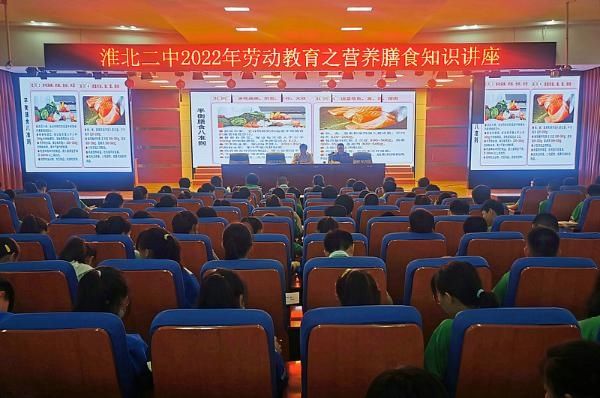In China, the cultivation history of edible beans is as long as cereals. China’s food culture is extensive and profound, with a long history, but the value of eating beans is often ignored by Chinese who have in-depth research on “eating”. On May 24, Huaibei No. 2 Middle School invited Dr. Zhou Bin, the head of the Hefei Comprehensive Experiment Station of the National Edible Bean Industry Technology System, the Deputy Director of the Beans Section of the Crop Research Institute of Anhui Academy of Agricultural Sciences, and the leader of the Edible Bean Germplasm Resources Innovation and Application Team. 7th graders talk about the types and nutritional benefits of edible beans.
Dr. Zhou first introduced the “Dietary Guidelines for Chinese Residents (2022)”, “Dietary Guidelines for Chinese School-aged Children (2022)”, “5.20 Nutrition Day for Chinese Students”, and the standards and principles of balanced diets. Then the main types of edible beans, economic value, nutritional efficacy, processed products, and edible instructions have been deeply analyzed and interpreted for students. There are many kinds of edible beans. There are currently 15 genera and 27 species, including our common peas, broad beans, kidney beans, mung beans, and our unfamiliar chickpeas, quadrangular beans, guar beans, and concave beans, etc. . Edible beans are rich in nutritional value, and have the functions of invigorating the spleen and nourishing blood, strengthening muscles and bones, supplementing protein, and dehumidifying for the human body. It is inexpensive for farmers to grow, tolerates drought and storage, and growing pulses helps reduce greenhouse gas emissions, improve soil fertility, and nourish intercropping crops, among other functions. Dr. Zhou especially emphasized that it must be cooked thoroughly before eating, otherwise soy toxins will cause food poisoning.
After the lecture, students interacted with Dr. Zhou. By answering questions, they broadened their horizons, increased their knowledge, and increased their interest in scientific research.
